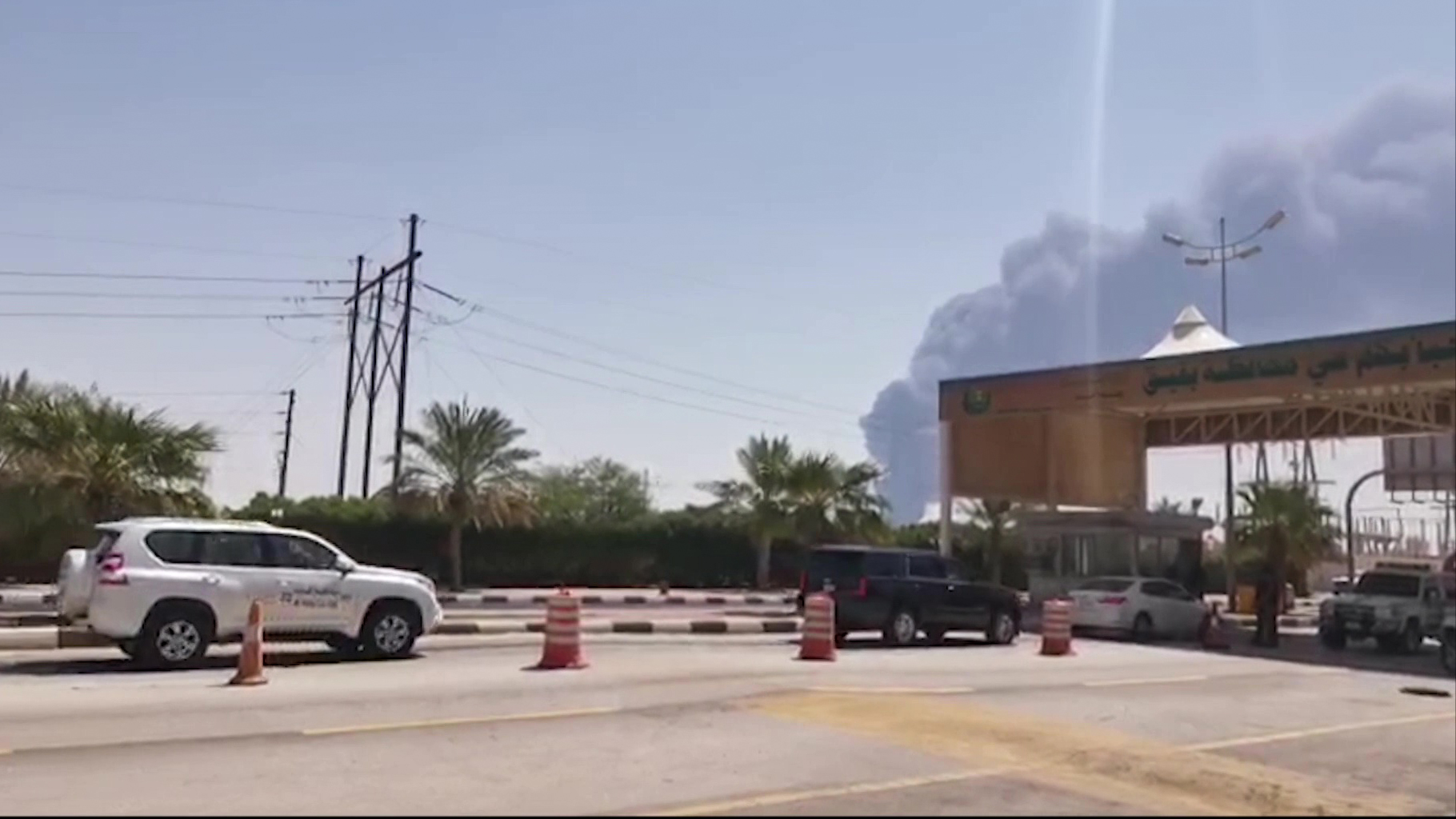An in-depth look at Libya’s oil economy
TEXT OF INTERVIEW
Kai Ryssdal: Tunisia: fine. Egypt: fine. Bahrain: a little bit disconcerting. Libya: that’s where world markets have decided to draw the line.
Stocks fell sharply today. Oil hit two-year highs as traders really started paying attention to what’s been going on in the Middle East, in particular the unrest and the increasingly violent suppression of it in Libya. In a speech tonight on state television, Moammar Gadhafi promised to fight on to his last drop of blood. He called on his supporters to take to the streets in counter-demonstrations tomorrow.
Steve LeVine is a contributing editor at Foreign Policy magazine. We’ve called him to explore the inner workings of the Libyan economy and how it might eventually affect the rest of the world. Good to have you with us.
Steve LeVine: Thanks for having me.
Ryssdal: Such as it does, how does the Libyan economy work?
LeVine: Oil. In one short word, it’s oil. So 95 percent of the country’s export earnings, which really is the whole economy, is oil. If you don’t have the oil, what you’ve got is a bunch of dates, really.
Ryssdal: And I’ll guess that that oil revenue is not evenly distributed, first of all, throughout the country, and then also through the population, right?
LeVine: Exactly. So Colonel Gadhafi, the leader of the country, his power base is in the western part of the country, that’s where Tripoli is located, the capital. What he’s done is left out the whole eastern part of the country, where half of the oil industry is based. What that is meant, is that from time to time, including right now, you’ve had uprisings there, very serious unrest. And right now, as we know, he’s lost control there.
Ryssdal: So what happens if, as we’ve been seeing the last couple of days, the large multinational corporations who are there exploring for oil are pulling their people out; the Libyan government itself has declared force majeure, it’s not going to fill its exports contracts — what happens to the Libyan economy?
LeVine: The economy, if this lasts for some time — which the information I should say, is pretty sketchy — the economy would come to a halt. It’s true that the ports are closed. But for example, the biggest oil producer, which is ENI, the Italian company, it is pulling out unnecessary expats but it is continuing production. So we may still see oil coming out of Libya.
Ryssdal: You mentioned an Italian firm; it is far more than American firms. It’s very heavily European, the outside corporate influence there.
LeVine: Exactly. Almost all of the production goes to Europe. So for example, Italy relies on Libya for 30 percent of its oil supply. It’s Europe that’s worried most directly about those supplies. The United States is worried because of oil prices, and we will see in the next week or so, gasoline prices go up at the pump because of this.
Ryssdal: What happens then if, as a lot of people are predicting, Colonel Gadhafi only has a couple days left running that country?
LeVine: What happens? Well, the chaos that we’ve seen there, which is much different, of a completely different character than what we saw in Tunisia and Egypt, that will continue. I have seen reports that that may cause problems in the oil sector, but you’d be surprised: the oil installations are located away from the population centers. It could be that the oil sector can run completely autonomously from any trouble, continued instability and chaos in the cities.
Ryssdal: Finally, on the larger oil market question: Libya has production capacities of plus or minus 1.5 million barrels a day. How consequential is that in a substantive sense to the world oil market, as opposed to the gee-it-makes-everybody-really-nervous sense?
LeVine: It’s more like the latter. We have between four and six million barrels a day of excess capacity available in Saudi Arabia mostly, but also some other of the OPEC countries, they can turn on those spigots really, really fast. In addition to that, there is a billion barrels of oil that is stored in oil tankers, and just on shore in countries around the world, including the United States. Therefore, Libya in itself is not a reason to panic.
Ryssdal: Steve LeVine, contributing editor of Foreign Policy magazine. He’s the author of the book, “The Oil and the Glory,” as well. Steve, thanks a lot.
LeVine: Thanks for having me.
There’s a lot happening in the world. Through it all, Marketplace is here for you.
You rely on Marketplace to break down the world’s events and tell you how it affects you in a fact-based, approachable way. We rely on your financial support to keep making that possible.
Your donation today powers the independent journalism that you rely on. For just $5/month, you can help sustain Marketplace so we can keep reporting on the things that matter to you.


















